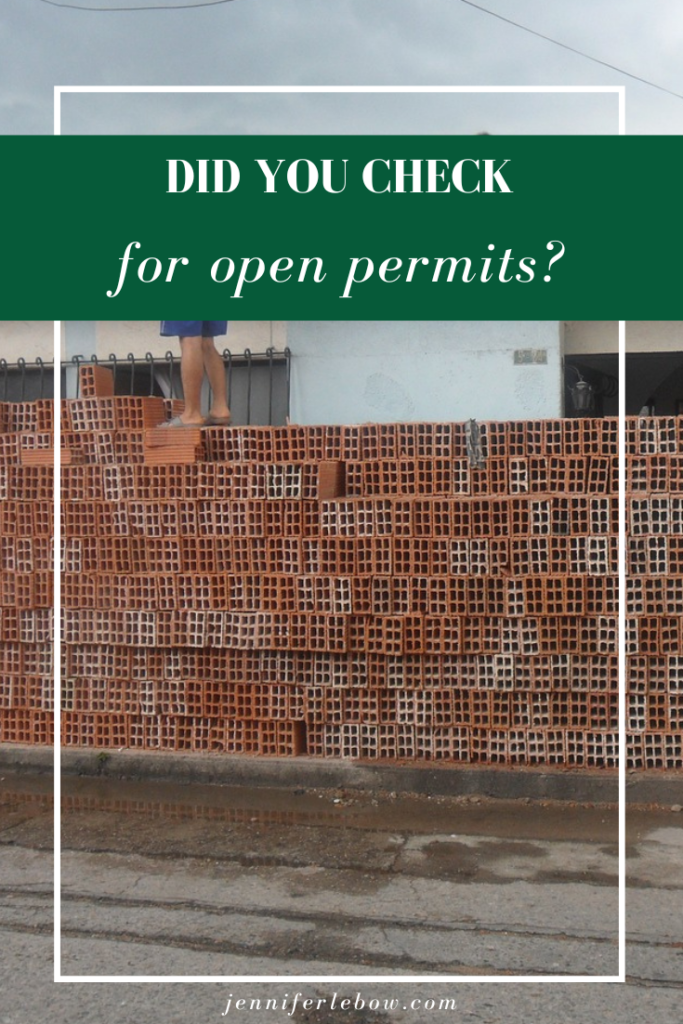
Many renovations require permits.
If you are purchasing a home (especially one that is new construction or has just undergone a major renovation), ensure that the permits have been closed before you go to closing. Shockingly often, builders don’t schedule for the township to come out and close the permits because then they have to pay the final fee AND because it’s possible that the township will flag something and the builder will be required to remediate it. I am aware of one situation in which an addition had to be removed because what the owner built was so vastly different from the design that was originally submitted when the permit was pulled. Decks are notoriously added without permits and often found to be incorrectly supported–you definitely don’t want that!
How do permits benefit me?
Permits and their ensuing inspections exist for a reason. Often it’s for safety, so you should insist upon knowing that the township inspector has closed out the permits. I sold a house that had been remodeled by (what we came to later learn) a couple of unprofessional handymen. The permits weren’t closed and I told my buyers that we needed to be sure everything had been done correctly. There was a litany of things done wrong. Most important, the addition put them over the allowable impervious surface amount. There was no electrical outlet in the kitchen island (required by code), they had not hooked up the gas and electric (not exactly a minor item), the steps to the entry were too tall and a serious tripping hazard, and the list went on. In one new construction house I sold, the attic insulation had been installed inside-out!
No open permits? Delve deeper.
A logical question is, “What if there are no open permits”? Well, it means one of two things. It could mean (and this is the hope) that the project did not require permits. In this scenario, you’d still want to be sure it was done correctly, but might just rely on a home inspector or plumber/electrician/roofer, etc. to verify that it was. The more problematic scenario is that the contractor/seller tried to fly under the township radar and never applied for a permit for a job that DID require one. It’s this circumstance that often leads to the biggest issues, and you, the buyer, don’t want to be left holding the bag as far as penalty fees or, worse, having to fix something that was done incorrectly. If you know there’s been significant work done on a property you are considering buying, the easiest way to find out whether a permit was required and/or pulled is to call the township and ask.
Don’t assume everyone does the right thing.
There are plenty of people who honestly don’t realize they need permits, and, therefore, don’t file them. Then, there are others who know better, but want to save on the costs of the permits and, worse, may plan to cut some corners when doing the job. Either way, you need to look out for your own best interests and try to avoid inheriting a problem.
If you are relocating to the Philadelphia/Main Line area, please go to my blog page and search for posts using the relocation tag. Contact me to discuss your Philadelphia area relocation! jen@jenniferlebow.com/610 308-5973


Leave a Reply